Cristiano Ronaldo: Whose goal scoring record has Juventus star reportedly beaten?
- Published
- comments
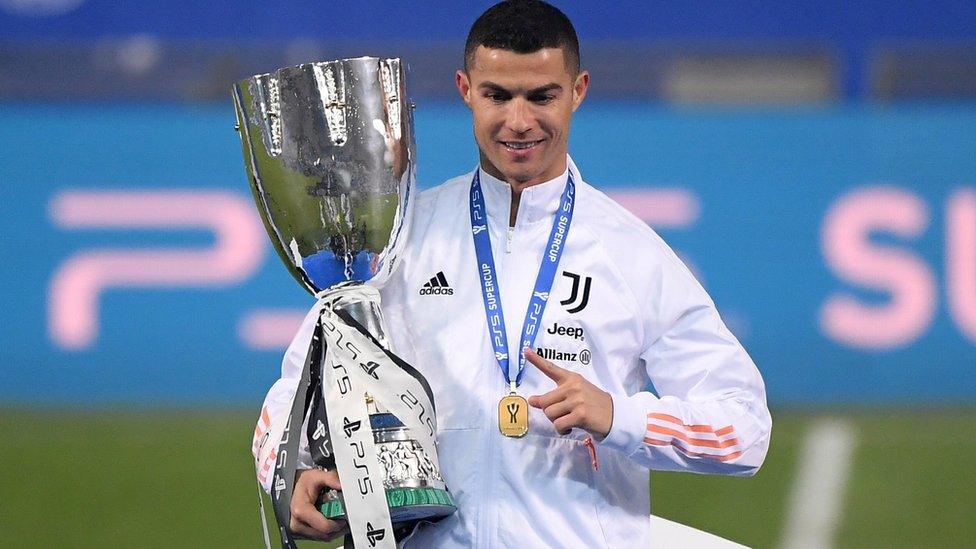
Lots of experts are saying that Cristiano Ronaldo has become the top scoring footballer of all time.
His goal for Juventus in the club's 2-0 Italian Super Cup win over Napoli took him to 760 goals in his career.
According to the official record books, that's one more than his closest rival - a footballer called Josef Bican from the Czech Republic.
However, the Czech football federation published a statement claiming Bican's tally actually stands at 821, meaning Ronaldo would have to score 62 more goals to become the top scorer in football history.
But, who is Josef Bican and how did he manage to score so many goals? Here's everything you need to know about the forgotten man of football.
The numbers
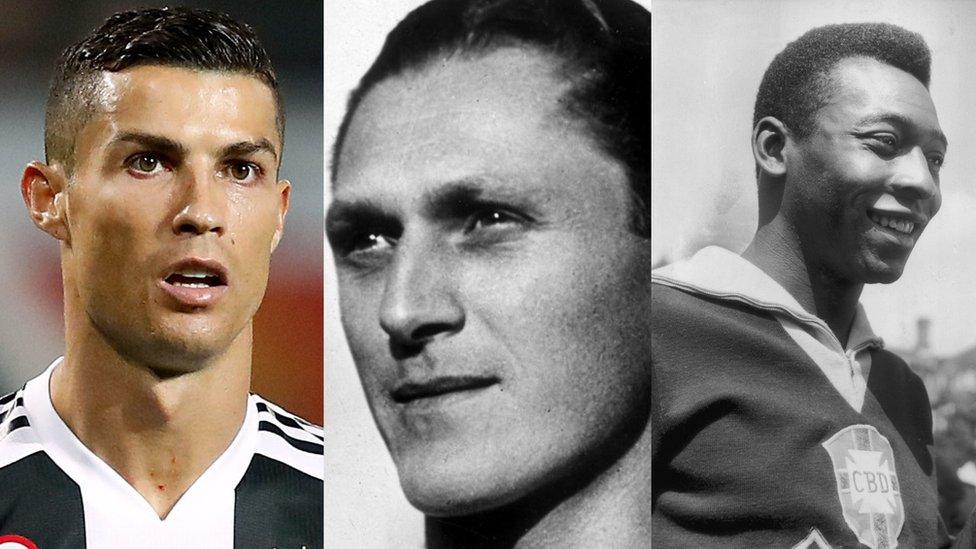
Cristiano Ronaldo, Josef Bican and Pele are the all-time top goal scorers in football history
It's quite difficult to accurately say how many goals Josef Bican scored because he played in a time when records weren't kept as thoroughly.
However, many experts say that between 1931 and 1955, he scored a remarkable 759 goals in 495 games.
You might be wondering where Brazilian legend Pele sits in this. His old club Santos claim his friendly match goals count and he's therefore scored over a thousand goals.
However, take away all the friendly matches and youth games and he supposedly sits just under Ronaldo and Bican with 757.
Who is Josef Bican?
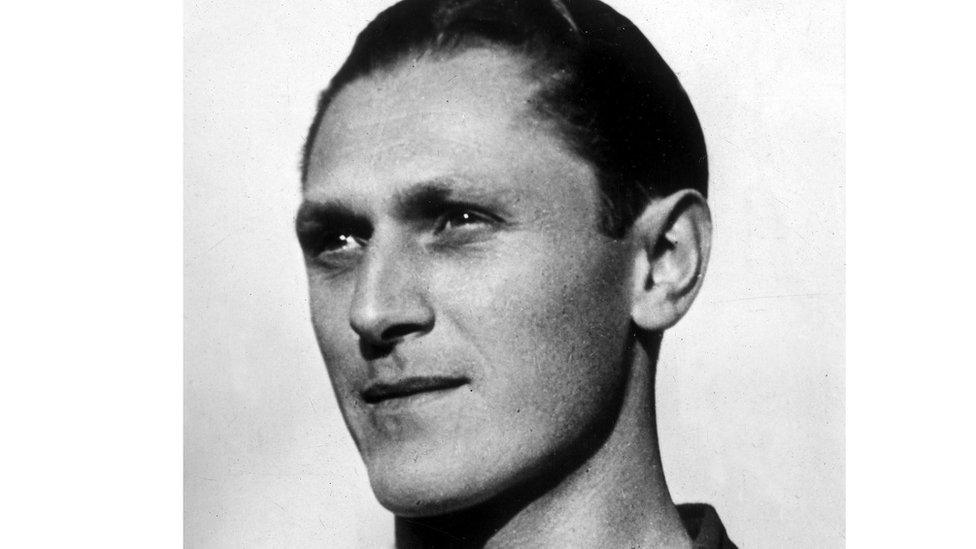
There aren't many pictures of Josef Bican. Here he is in 1939
Josef Bican was born in the Austrian city of Vienna in 1913.
He was born into a poor family and had to learn to play football without any shoes.
It's said that he instead of having a leather football, he had to make-do with a makeshift ball made out of rags.
At the age of 18 he joined a team called Rapid Vienna who were one of the biggest teams in the country.
Legend has it, Bican was so fast at the time that he could run 100 metres in 10.8 seconds.
That's the same as the then Olympic 100 metres record holder, Percy Williams.
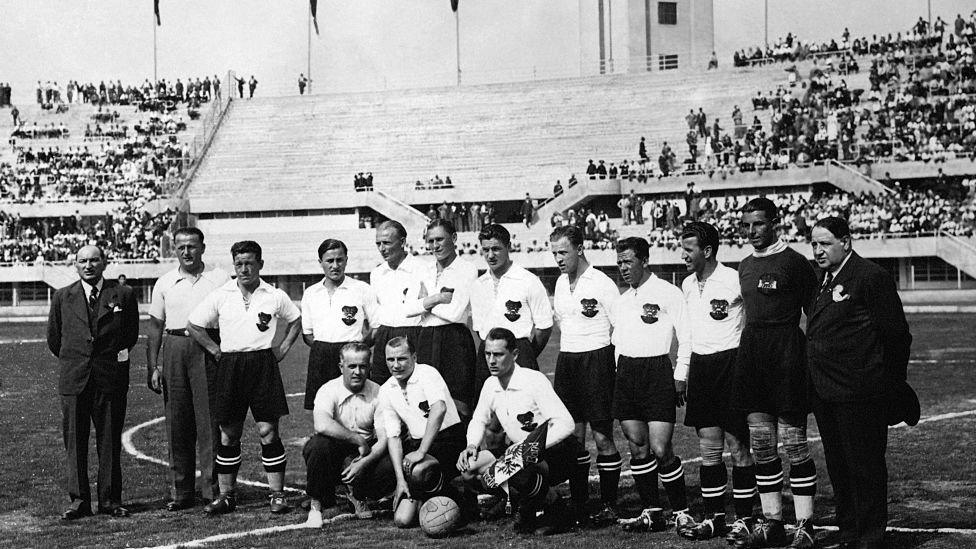
The Austria national football team at the 1934 World Cup
By 1934, he was one of the best players in the country and played for the Austrian national team at the World Cup.
That Austrian team was so good that they were referred to as das Wunderteam by journalists and fans.
They fell short in the tournament at the semi-final stage but their performances put Austria on the map.
The rules were a bit different back then so when Bican decided to move to Czech side Slavia Prague in 1937, he applied for citizenship there.
It meant that he no longer played for Austria and instead lined up for the Czechoslovakia national team.
Resisting regimes
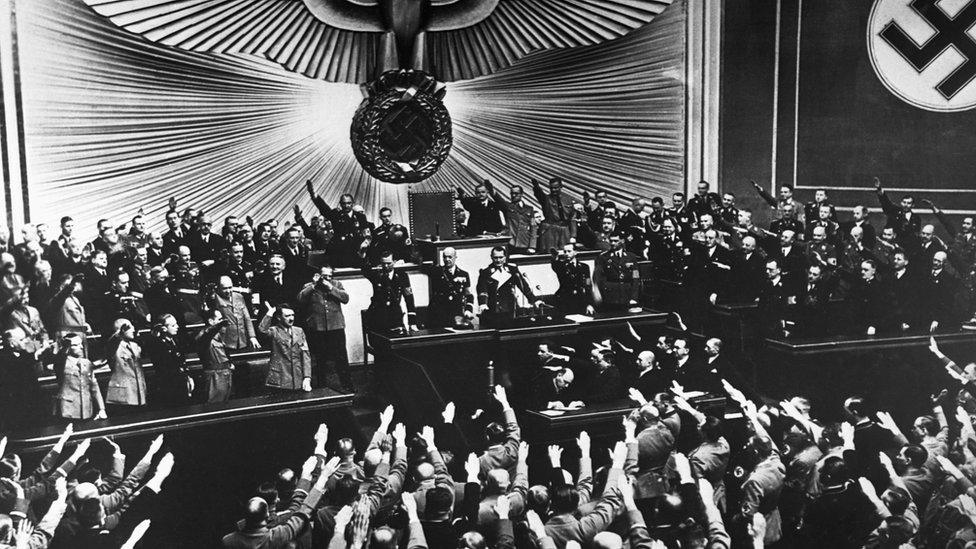
Bican left his native country of Austria due to concerns over the growing influence of Adolf Hitler's Nazi Party in the region
One of the main reasons why Bican wanted to move out of Austria was because of the growing presence of Nazi Germany in Europe.
He feared Adolf Hitler's Nazi party and was worried Austria would be invaded by Germany.
He moved to Czechoslovakia with his family in 1937, hoping it would be far enough away from Hitler's growing movement.
However, this wasn't the case and Hitler's troops marched into the country.
Bican was already playing for Czechoslovakia's biggest team by that point and continued to play throughout the Second World War.
When Hitler demanded that all of the best players from the Nazi occupied Austria featured in an all-star 'Germany' side in the 1938 World Cup, Bican refused.
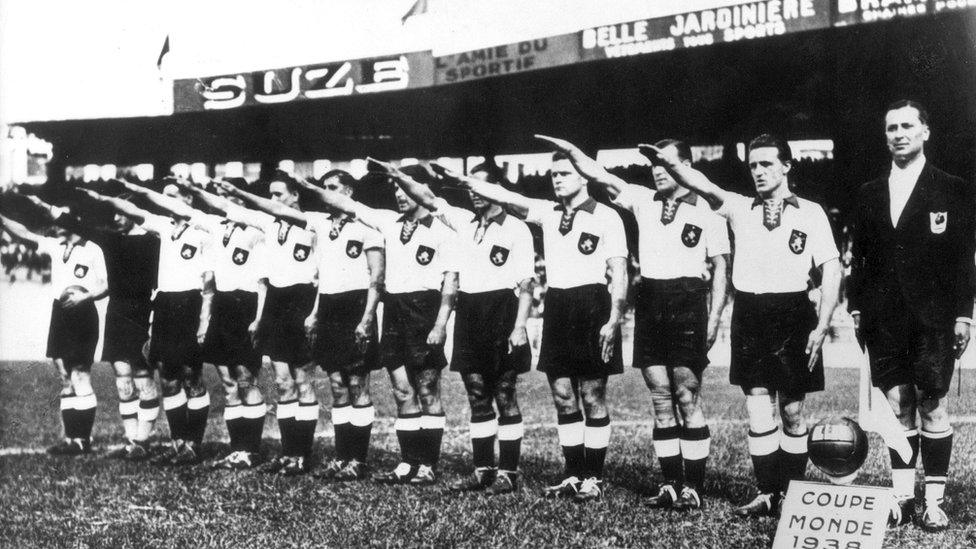
The Germany team at the 1938 World Cup doing a Nazi salute
After the war, the biggest clubs in Europe started to approach Bican to sign for them.
When Italian giants, Juventus, came calling, Bican said no because he was worried the country was about to turn to communism.
In a communist system:
Businesses are owned by the state and any wealth from them is controlled by the people in power
There is one political party in charge
There is no opportunity for citizens to vote for who they want to be in charge or change the government (a dictatorship)
It is more important to serve the state and be obedient to those in charge than it is to have personal freedoms
The media is controlled by those in power
Ironically, in 1948 that very fate happened in Czechoslovakia.
Again Bican resisted, moving away from Slavia Prague for his own safety.
Bican became a famous-figurehead for the anti-communist movement in Czechoslovakia because of his fame and resistance of the regime.
The Communist government hated this and ruined Bican's name by labelling him as a 'rich man' from Austria, despite his humble beginnings.
This meant Bican lost a lot of his money and he was forced to take some work on a railway following his retirement from football.
Legacy
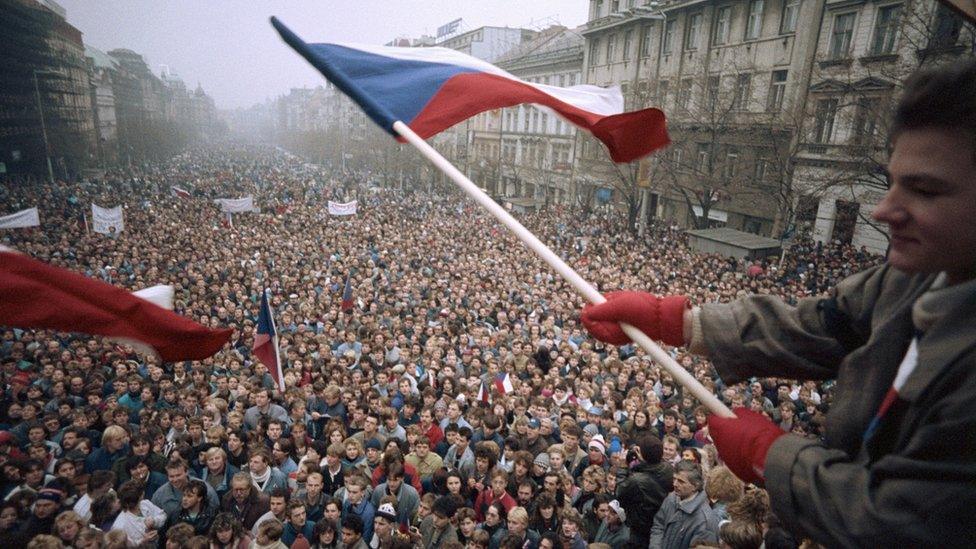
Czechoslovakia was under communist rule until the Velvet Revolution in 1989
In 1989, Czechoslovakia went through the Velvet Revolution. This meant the country was no longer under communist rule.
It was at this moment that Bican was able to return to public life as a hero.
Just months before his death, he was given the Freedom of Prague by the city's mayor in 2001.
He died aged 88 on 12 December that year.
Bican is regarded as one of Austria and Czechoslovakia's greatest sportsmen.
He famously said of his goal record: "Who'd have believed me if I said I'd scored five times as many goals as Pelé?"
- Published9 September 2020
- Published22 January 2021

